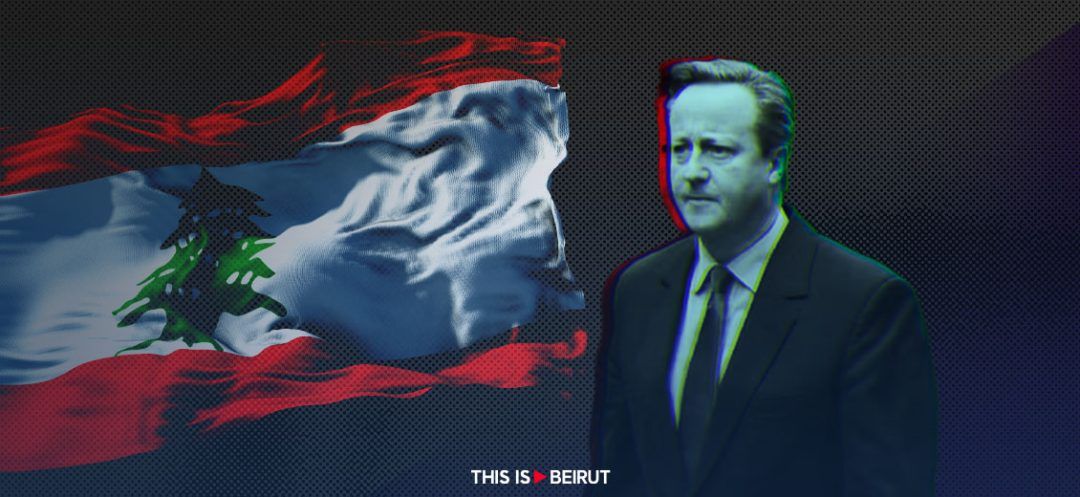- Home
- War in the Middle East
- Cameron Underlines Implementation of Resolution 1701, Support for Army

British Foreign Secretary David Cameron's visit to Lebanon is not the result of US or European cooperation. Rather, it occurred in the context of international efforts towards ending the war in Gaza and South Lebanon between the Israeli army on one side, and Hezbollah and Hamas on the other.
Information pertaining to Cameron’s meetings with Lebanese officials, including Parliament Speaker Nabih Berri and caretaker Prime Minister Najib Mikati, indicates that the UK is relying on Qatar’s initiative to reach a humanitarian truce as soon as possible in Gaza. This truce will inevitably have an impact on the situation in South Lebanon, which will allow for further negotiations over a permanent settlement in the region. The settlement in question will revolve around the two-state solution for the Israelis and the Palestinians, and the implementation of United Nations Resolution 1701 in South Lebanon.
In this context, Cameron called upon the relevant parties to deploy all the necessary efforts to keep the war from spreading to the rest of Lebanon and added that the UK is active in that regard. According to certain information, Cameron stated that the solution lies in the implementation of UN Resolution 1701, through support for the Lebanese army that is supposed to carry out this mission. Cameron also asked the Lebanese army command to communicate what it needs in terms of funds, logistics and military equipment to help with the implementation of Resolution 1701. British support for Lebanon amounts to approximately GBP 100 million annually.
Cameron shared information with Lebanese officials about his visit to the region, which included a number of Gulf States and Israel. He assured that the UK is trying to bring the warring sides together to reduce violence in the region and is thus attempting to find grounds for political settlement, as this has become an urgent request from all parties, knowing that consensus over the two-state solution is drawing ever closer.
Information pertaining to Cameron’s meetings with Lebanese officials, including Parliament Speaker Nabih Berri and caretaker Prime Minister Najib Mikati, indicates that the UK is relying on Qatar’s initiative to reach a humanitarian truce as soon as possible in Gaza. This truce will inevitably have an impact on the situation in South Lebanon, which will allow for further negotiations over a permanent settlement in the region. The settlement in question will revolve around the two-state solution for the Israelis and the Palestinians, and the implementation of United Nations Resolution 1701 in South Lebanon.
In this context, Cameron called upon the relevant parties to deploy all the necessary efforts to keep the war from spreading to the rest of Lebanon and added that the UK is active in that regard. According to certain information, Cameron stated that the solution lies in the implementation of UN Resolution 1701, through support for the Lebanese army that is supposed to carry out this mission. Cameron also asked the Lebanese army command to communicate what it needs in terms of funds, logistics and military equipment to help with the implementation of Resolution 1701. British support for Lebanon amounts to approximately GBP 100 million annually.
Cameron shared information with Lebanese officials about his visit to the region, which included a number of Gulf States and Israel. He assured that the UK is trying to bring the warring sides together to reduce violence in the region and is thus attempting to find grounds for political settlement, as this has become an urgent request from all parties, knowing that consensus over the two-state solution is drawing ever closer.
Read more



Comments